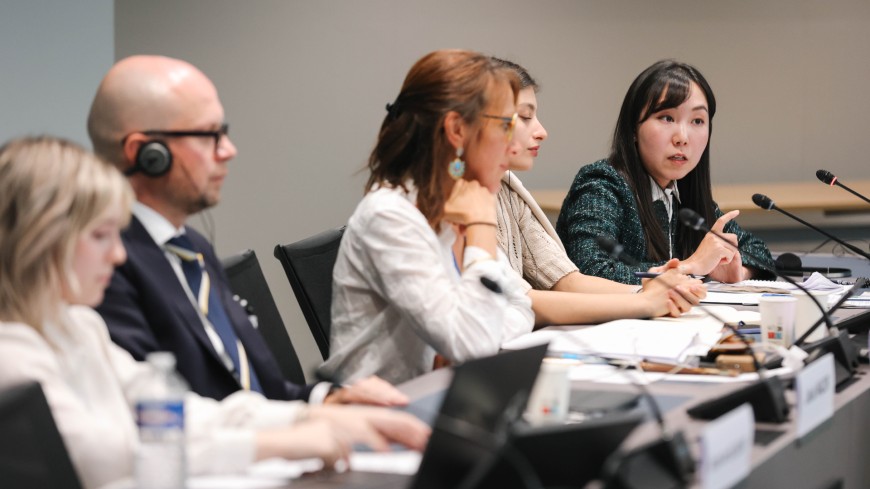“We are living through unprecedented crises that pose new challenges and require innovating in response to them; local authorities are at the forefront of responding to these new challenges,” underlined Melanie Lepoultier, Deputy Permanent Rapporteur of the Congress on human rights and Mayor of Sommervieu (France), introducing a round table on local innovation for stronger local authorities, in Strasbourg on 13 September 2024. “Local innovation is the catalyst for empowering communities. By fostering creativity and encouraging new ideas at the grassroots level, we enable local authorities to address specific challenges effectively,” she said, adding that promoting human rights through innovative practices would strengthen social cohesion in communities.
Deputy Mayor of Wroclav (Poland) Jakub Mazur promoted the use of artificial intelligence (AI) and digital tools, in particular in managing the integration of migrants and refugees. “While it is true that AI risks to deepen inequalities, they are also key instruments to elaborate innovative solutions to support refugees,“ he said.
Policy analyst from the organisation for Economic Cooperation and Development (OECD) Ji Soo Yoon pointed out that local authorities were at the heart of the success of climate initiatives. “They bring a unique understanding of their local population, and facilitate local engagement. They cannot be left alone in this, either local or central authorities, and national associations are necessary to fight together climate change challenges,” she added.
“Community-wide awareness, support, and understanding will always trump ignorance and hatred, which often breeds in the dark,” emphasised Alicia Ann Blount, Congress Youth Delegate from the United Kingdom, speaking about the role of local and regional authorities in addressing internet safety and cyberbullying. “Educate, legislate, accommodate – these approaches are just the beginning of making our online community safe for women and children,” she said.
The participants pointed out that while new technologies offer new ways to solve problems, improve services and enhance the quality of life for all local residents, digital divide and digital security remained important concerns, aggravated by the persisting urban-rural divide. They recommended further support to human rights-oriented innovations and multilevel governance serving to promote the Council of Europe’s values and standards; promoting the use digital and AI tools for Ukraine’s recovery, return of refugees and local development, especially in rural areas; and fostering inclusive measures to mitigate climate change and sustainable development through sustainable building policies.
It was also recommended that European local authorities’ associations promote local actors’ innovative initiatives using the existing best practices, co-creation with communities – including youth and underrepresented and vulnerable groups – as well as preparedness to emergencies through sharing best practices (in terms of possible evacuation or receiving influx of refugees, war and climate emergencies); and contribute to developing cybersecurity measures and better regulation, education, awareness and engagement (such as by updating toolkits on cybersecurity).
Mediabox interview with Mélanie Lepoultier, Jakub Mazur and Elina Rotaru
Mediabox interview with Lisa Cruz Lackner and Alicia Ann Blount




